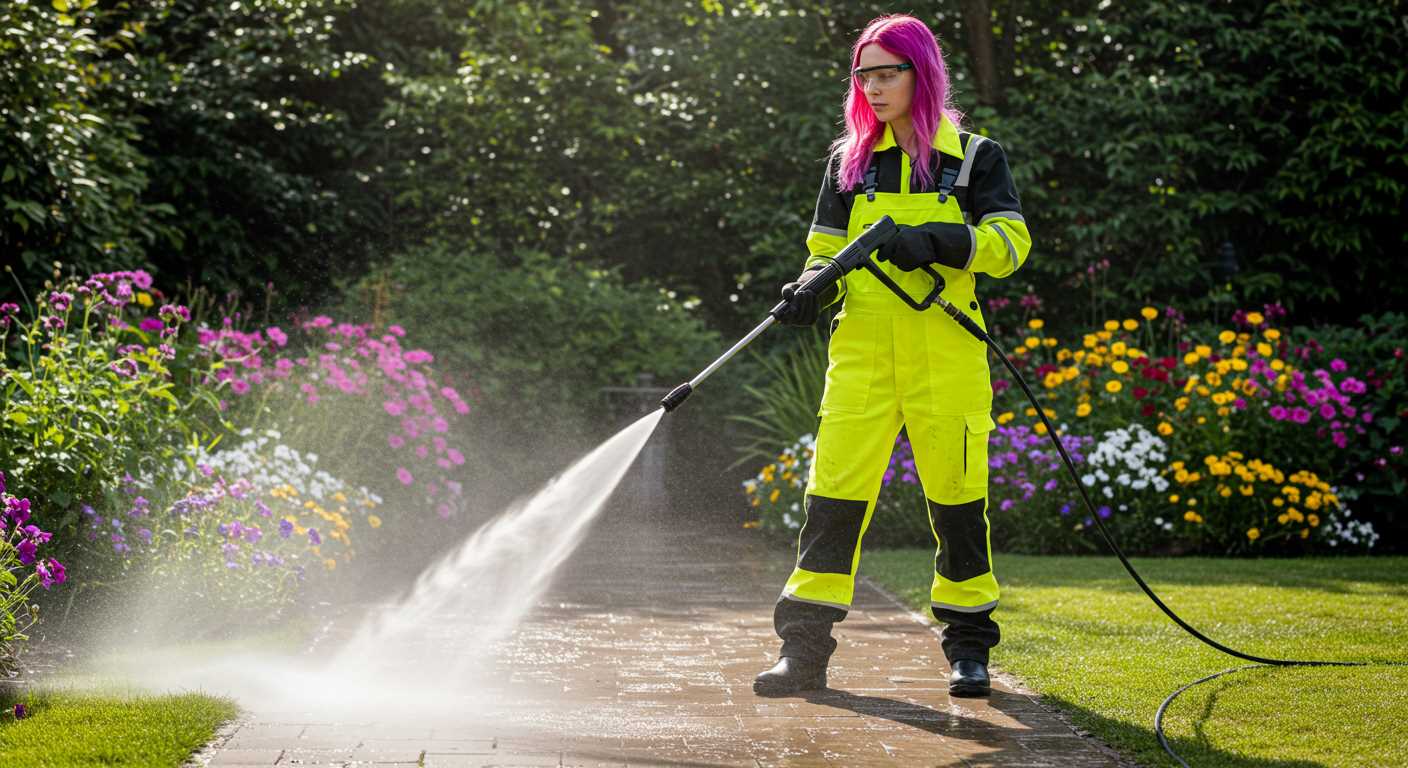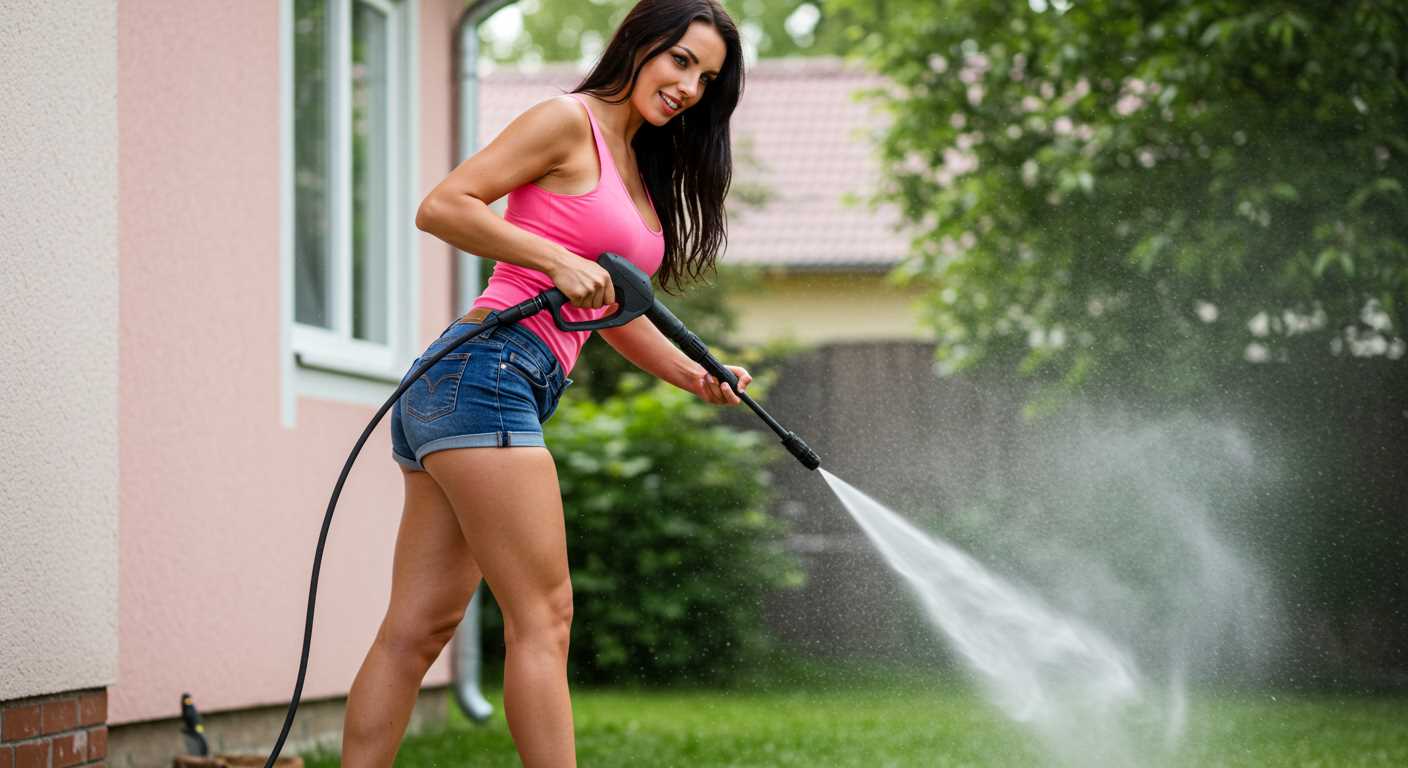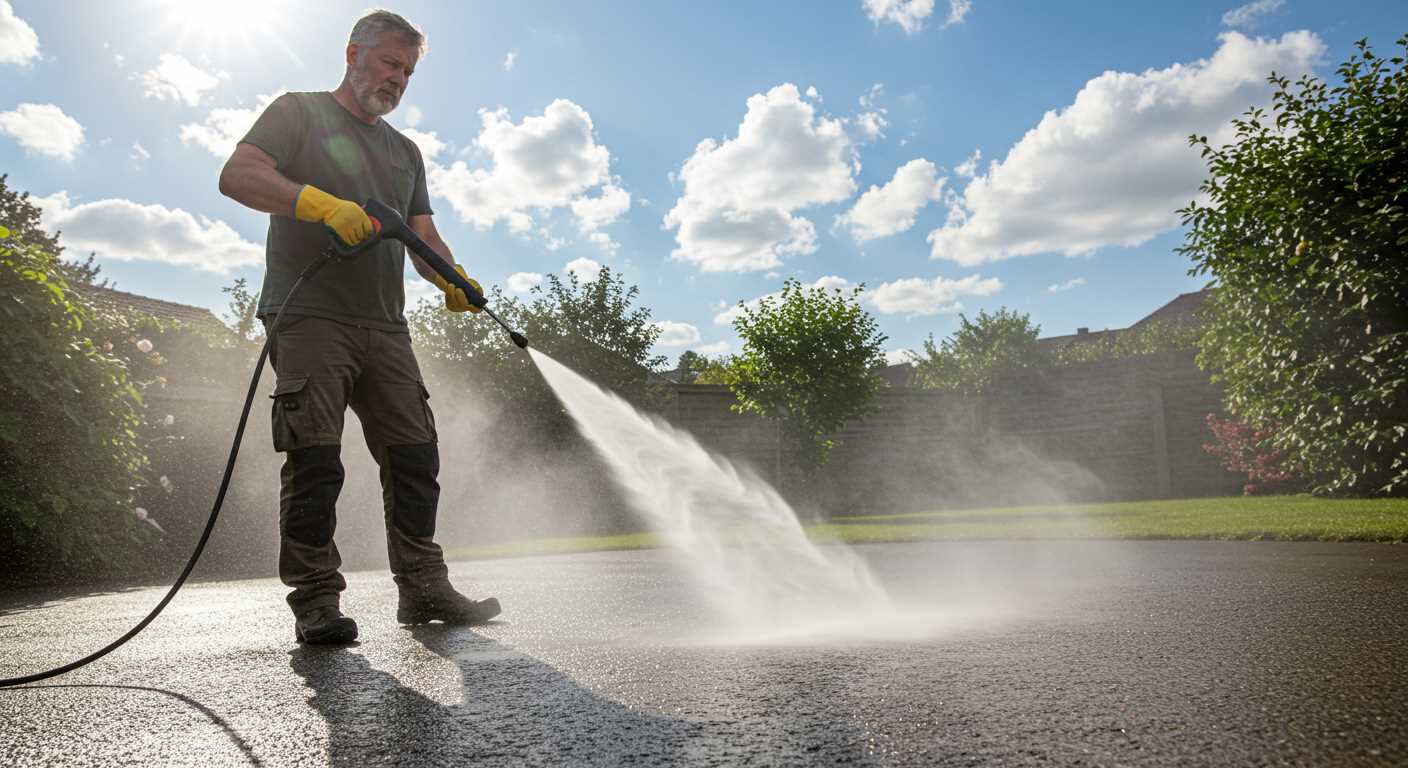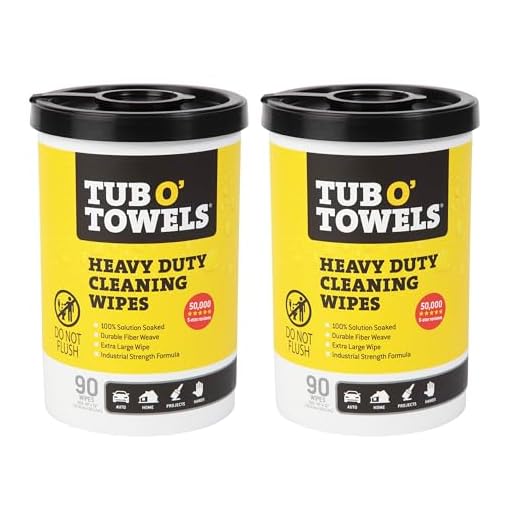



For the average homeowner tackling outdoor cleaning projects, a machine delivering between 1300 and 2300 PSI paired with a flow rate of 1.2 to 1.8 GPM is typically sufficient. This range effectively addresses tasks like washing cars, removing dirt from patios, and cleaning garden furniture without causing damage to surfaces.
If your needs are more demanding, such as for deep cleaning concrete or tackling larger areas, consider units with a PSI of 2500 to 3000. This strength is suitable for heavy-duty applications, including stripping paint from surfaces and cleaning large driveways, making the investment worthwhile for those projects.
When evaluating options, it’s also important to consider the nature of the nozzle attachments. A rotating or turbo nozzle can enhance cleaning efficiency by focusing the power of the water stream, making even mid-range units perform exceptionally well for tough jobs.
Determining the Right Power for a Cleaning Machine
For typical residential tasks, a unit delivering between 1300 to 2300 PSI is ideal. This range effectively removes dirt, mildew, and grime from surfaces like patios, cars, and garden furniture without causing damage.
If working on more challenging projects, such as stripping paint or deep-cleaning concrete, opt for models with output reaching 3000 PSI. Selecting one with adjustable settings offers flexibility across different cleaning scenarios.
Additionally, consider the GPM (gallons per minute) rating. A balance of 1.5 to 2.5 GPM complements PSI for optimal cleaning power. Higher GPM can enhance efficiency, particularly for larger areas that require thorough rinsing.
Electric variants generally operate on the lower end of the spectrum, while gas-powered machines provide more robust performance. Assess your specific needs and surface types to align choice with usability.
Lastly, ergonomics and ease of manoeuvrability are key. A lightweight design with effective nozzles and attachments can significantly impact user experience. Aim for versatility in nozzles to adapt the output for various surfaces, ensuring thorough and safe cleaning.
Understanding PSI and GPM: Key Factors Explained
For optimal cleaning results, the combination of PSI (pounds per square inch) and GPM (gallons per minute) is critical. I recommend a minimum of 2,000 PSI and 1.5 GPM for household tasks like washing vehicles or patios. This balance effectively removes dirt without causing damage.
PSI measures the water pressure delivered from the nozzle. Higher numbers signify more power, particularly useful for tough stains like oil or grime. However, excessive pressure can damage delicate surfaces, so select a model suited to your specific cleaning needs.
GPM indicates the volume of water flowing from the machine. A higher GPM provides quicker coverage and rinsing capabilities. When tackling large areas or projects requiring thorough rinsing, aim for models providing 2 GPM or more. This ensures a more efficient cleaning process, reducing overall time spent on tasks.
Always look for a unit that offers adjustable settings. This flexibility allows you to match the PSI and GPM to the job at hand, ensuring both effectiveness and safety. Remember, for residential use, a machine delivering 2,500 PSI and 2.0 GPM strikes an excellent balance for a variety of tasks, making it a versatile choice for homeowners.
Choosing the Right Pressure Washer for Home Cleaning Tasks
For optimal results during home cleaning projects, it’s crucial to tailor your selection of a cleaning machine to specific tasks. I recommend categorising your needs based on the surface types and grime levels you encounter.
| Task | Recommended PSI | Recommended GPM | Comments |
|---|---|---|---|
| Light-duty tasks (e.g., patio furniture, vehicles) | 1300 – 1900 PSI | 1.2 – 1.5 GPM | Suits delicate surfaces; prevents damage. |
| Medium-duty tasks (e.g., driveways, decks) | 1900 – 2300 PSI | 1.5 – 2.2 GPM | Effective for tougher dirt; versatile. |
| Heavy-duty tasks (e.g., grease stains, brickwork) | 2300+ PSI | 2.0+ GPM | Best for persistent grime; requires caution on sensitive surfaces. |
Understanding the right balance of power and flow rate is essential. A higher PSI indicates increased pressure, which is advantageous for removing stubborn stains, but may not be necessary for lighter tasks and can even cause damage if misused.
When evaluating your options, consider additional features such as nozzle types and attachments. Adjustable nozzles allow for varying pressure settings, while specialized brushes and surface cleaners can enhance efficiency and effectiveness.
Investing in a quality machine that suits your specific needs will lead to more satisfying cleaning outcomes and prolong the lifespan of your equipment. Always prioritise safety by wearing appropriate protective gear and being mindful of surrounding areas.
Identifying Suitable Pressure Ratings for Different Surfaces
For concrete driveways, a rating of 3000 to 3500 PSI is ideal. This level effectively removes grime, oil stains, and embedded dirt without causing damage. For wooden decks, opt for a lower range of 1200 to 2000 PSI to prevent splintering and preserve the wood’s integrity.
Brick and stone paths typically endure high pressures, so 2000 to 3000 PSI works well for cleaning these surfaces. However, caution is needed with aged masonry; a lower value could be safer. For vehicles, selecting a unit with 1500 to 2000 PSI ensures thorough cleaning without harming the paint finish.
Recommended Pressure Levels for Various Applications
In patio cleaning, 2000 to 2900 PSI is effective for removing mould, mildew, and built-up debris. For lighter jobs, such as washing outdoor furniture or garden tools, 1300 to 1600 PSI suffices. Inside the home, 1400 to 1900 PSI is suitable for tackling surface dirt on walls and fences.
Matching Accessories to Pressure Ratings
Choosing the right accessories greatly enhances cleaning efficiency. A rotating nozzle can increase the impact of lower PSI ratings, making it effective for tough stains without increasing the risk of damage. Always ensure that accessories are compatible with the unit’s PSI and GPM ratings to achieve optimal results.
Assessing Cleaning Equipment Needs for Specific Projects

Determine the tasks ahead before selecting any cleaning device. Different projects demand different specifications.
For instance, exterior cleaning of a house typically requires equipment with a minimum of 2500 PSI and around 2.5 GPM, ideal for removing stubborn dirt and mildew from siding.
- Deck Restoration: For wood decks, aim for 1500-2000 PSI to prevent damage. Pair with a wider spray nozzle to ensure safety.
- Vehicle Cleaning: A gentler touch is necessary. Choose equipment around 1200-1900 PSI with a lower GPM to prevent scratches.
- Concrete Driveways: Tackle oil stains with 3000 PSI or more, coupled with a rotating nozzle for enhanced effectiveness.
- patios and Pavers: 2000-2500 PSI tends to be ideal, along with a surface cleaner attachment for a uniform finish.
Assess the surface material before operating. Different materials respond differently to pressure: softer surfaces like wood or painted areas require lower settings, while hard surfaces like stone or concrete can withstand higher pressures.
Projects that involve delicate areas, such as windows or screens, benefit from adjustable PSI settings, enabling careful modulation of output. Evaluate if attachments are necessary for specific tasks, such as detergent injection for heavy grime.
Always factor in the project’s scale. Larger jobs may necessitate more powerful machines, whereas small cleaning tasks can be efficiently managed with compact units. Pay attention to user-friendliness as well; heavier equipment can be cumbersome and may affect mobility.
Comparing Electric vs Gas Pressure Washers: Strength Differences
Electric models typically range from 1,300 to 2,000 PSI and 1.2 to 1.5 GPM, making them ideal for light to medium tasks like cleaning cars, patios, and garden furniture. For those who tackle grimes like oil spills or heavily soiled surfaces, I recommend looking into gas alternatives, which can produce between 2,500 and 4,000 PSI and 2.0 to 4.0 GPM. This higher power allows for efficient cleaning of driveways, decks, and heavy-duty jobs.
Performance Characteristics

- Maintenance: Electric units require less upkeep and have fewer components that could fail. With gas equipment, periodic tuning and fuel management are essential.
- Mobility: Gas-powered models are often more portable due to their lack of tethering to an electrical outlet, making them suitable for extensive jobs away from power sources.
- Noise Levels: Electric versions operate quietly, a necessary factor for residential areas, whereas gas units produce more noise, which may disturb neighbours.
Cost Considerations

In terms of purchasing, electric machines are generally more economical, often priced between £100 to £300. Gas versions can range from £300 to over £1,000. While the upfront cost of gas models is higher, they can offer better long-term value for larger, more frequent projects due to their superior cleaning capabilities.
Ultimately, the choice between these machines hinges on the frequency and type of tasks at hand. Electric units are perfect for routine maintenance, while gas options excel in deep-cleaning scenarios where maximum pressure is required. Assess your needs carefully to ensure your investment aligns with your cleaning demands.
Maintenance Tips to Ensure Your Cleaning Equipment Performs Well
The key to longevity and efficiency lies in regular maintenance. Begin by inspecting the hoses and connections for leaks or damage. Tighten any loose fittings, as this can prevent unnecessary water loss and improve performance.
Every few months, clean the inlet filter. This component ensures that debris doesn’t clog the system, enhancing water flow. A blocked filter can strain the motor and reduce overall effectiveness. Clean it under running water to remove any build-up.
Proper Storage and Care
After each use, empty the system of water to prevent mineral build-up and freezing during colder months. Store it in a dry, covered area, ideally at room temperature to protect components from extreme temperatures. Always lift the unit rather than dragging it to maintain the integrity of the hoses and wheels.
Using the correct detergent is vital for optimal results. Select a cleaner that complements your model and the surfaces you are tackling. Ensure that you follow dilution guidelines provided by the manufacturer to avoid damage.
Regular Checks and Component Replacement
Inspect the spray gun and nozzle routinely. If you notice uneven spray patterns or blockages, clean or replace the nozzle, as dirt can diminish pressure output. Keeping the nozzle in good condition ensures that each cleaning task is tackled effectively.
Schedule an annual professional service for deeper maintenance. A technician can check internal components, belts, and electrical systems. This proactive measure helps identify potential issues before they escalate, saving time and expense in the long run.
With these tips, you can ensure your cleaning device remains reliable and efficient for all your cleaning needs.










